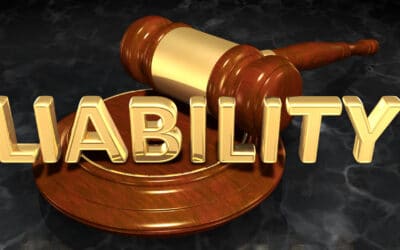Every three seconds, an American is accidentally injured and every three minutes, an American is killed by a preventable accident. Accidental injuries include dog bites, slip, and fall accidents, vehicle accidents, or workplace safety accidents.
If you or a member of your family has been the victim of a preventable accident, you may be considering hiring a personal injury lawyer. Before you agree to work with someone, make sure you ask plenty of questions to fully understand what you are getting into.
Here are 9 important questions you should ask any potential personal injury lawyer before hiring them.
1. What Are Your Fees?
Most personal injury attorneys work on a contingency basis, which means that you do not pay anything unless they win your case. Don’t assume this is the case though; make sure you confirm the fees before you agree to work with them.
If you win your case, you can expect to pay between 25 and 40% of your settlement amount to your attorney. The most common amount is about 30%.
There may also be charges for any case-related costs, such as expert testimony, medical exams, or other costs incurred during your case. Generally, the attorney handles these costs, and then you are responsible for them if you win. If you don’t win, however, make sure you understand whether you are still responsible for these costs.
2. Have You Taken Similar Cases? What Was the Outcome?
Not all personal injury cases are created equal. You wouldn’t pick a lawyer who has never represented a client injured in a maritime accident, for example, if they had only ever represented clients injured in car accidents or at work.
Ask the attorney how many cases like yours they have taken on in the past and what the outcome was. Many attorneys and law firms even post anonymized case outcomes on their websites so you can learn more about their success rates.
Taking on cases that were successful in the past doesn’t guarantee that you will be successful, but an experienced attorney will greatly improve your chances of getting the compensation that you deserve.
3. Have There Been Any Ethical Complaints or Grievances Filed Against You?
Every state has a bar association where you can check to see if your attorney has ever been disciplined or had and ethical complaint or grievance filed against them. Do your due diligence and check into any potential attorney to see if they have a history of misconduct.
4. What is Your Trial Experience?
Most attorneys want to settle cases out of court. Most of the negotiation is with an insurance company who represents the defendant. In many cases, attorneys can successfully negotiate a settlement that is agreeable to you as the client.
However, in the event that you cannot reach a fair settlement with the defendant, the case may go to a trial. If this happens, you want an attorney who has trial experience. This is why you want to ask about trial experience upfront.
You don’t want to find out right before trial that your attorney has limited or no litigation experience.
5. What Resources Do You Have to Work on My Case?
If you have a complex case, such as medical malpractice, you’ll want to make sure the attorney or law firm you hire has the resources necessary to take on your case adequately, especially if it ends up going to trial.
Medical malpractice cases might require expert witnesses. A case against a trucking company could involve accident reconstruction. A workplace injury might put you up against a huge corporation with seemingly endless legal resources.
Make sure the attorney you choose has the resources to investigate your case and bring in any specialists needed. If they do not, you might be shortchanging yourself or get pressured to take a settlement just so the case can conclude.
6. What Is My Case Worth?
Although they can’t give you any guarantees, an experienced personal injury attorney should be able to give you a general idea of what kind of settlement you may get. They will likely be able to give you a range based on the circumstances of your case and based on their experience with other similar cases.
7. How Long Will The Case Take?
Again, an attorney can’t guarantee how long the case will take, but they should be able to give you a general idea of how long it might take to reach a settlement. Keep in mind that if your case goes to trial, that will significantly lengthen how long the case takes to conclude.
As medical bills accumulate, work is missed, and other financial difficulties arise, you will likely want an idea of how long you can expect to wait to get a payment. Ask your attorney how long similar cases generally take to settle.
8. How Do You Communicate?
If you are someone who prefers to speak on the phone, make sure you hire an attorney who is amenable to that. If you prefer electronic communication, such as email or text, discuss that ahead of time.
Agreeing on how you will communicate will make the entire process smoother and eliminate frustration on both sides in many cases. You should also ask your attorney what their typical turnaround time is to respond when you reach out to them.
9. What Is My Role in the Case?
Some clients want to be highly involved, getting frequent updates, attending depositions, and other meetings. If this is you, you’ll want to make sure your attorney is ok with this. If you prefer to be on the sidelines and let them handle everything, discuss this as well.
A Personal Injury Lawyer To Get You What You Deserve
Accidental and preventable injuries can have significant negative impacts on your life. If you hire a personal injury lawyer, make sure you hire one that will most effectively represent you, and has experience with your type of case.
If you find yourself in need of a personal injury lawyer, contact us for a free case consultation. We handle personal injury cases including vehicular injuries, medical negligence, and other personal injuries, like dog bites, slip-and-fall accidents, and offshore accidents.



